Podcast: Play in new window | Download | Embed
Hunters from Point Lay, Alaska will collaborate with an anthropologist from Russia this summer to document traditional knowledge about walruses.
It’s an important part of recording traditions – and, as the Alaska Desk’s Alena Naiden from our flagship station KNBA reports, for maintaining collaboration across the Arctic.
Growing up, Robert Qaummaluk Lisbourne remembers walruses starting to beach near Point Lay in large numbers.
It was always an exciting time for local hunters, but he says a stream of boats and gunfire startled the animals, causing them to rush to water and crush some of the young pups.
Since then, Lisbourne says, hunting practices have changed.
“We gotta find a better way to hunt these animals without causing the stampede.”
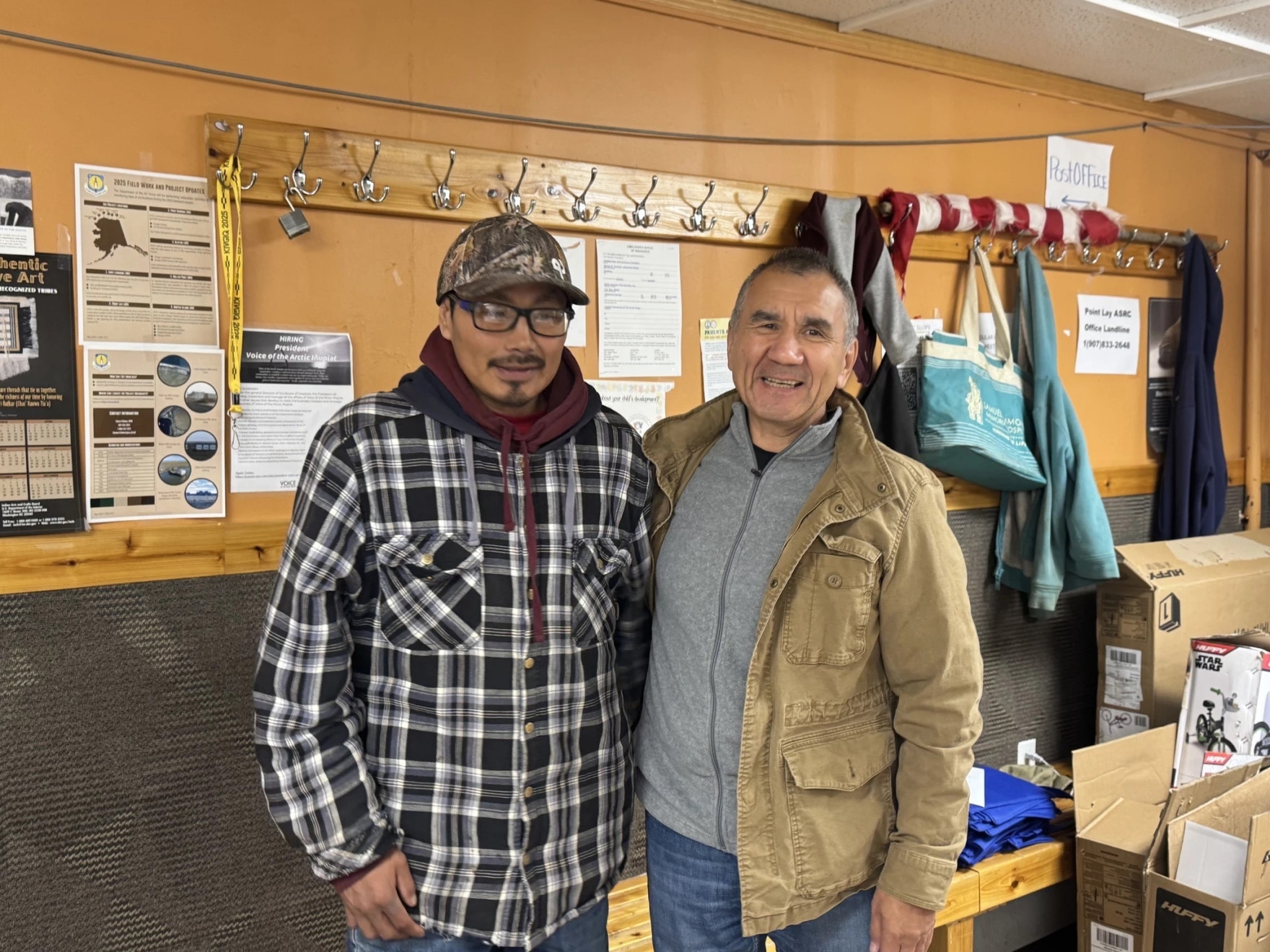
Robert Qaummaluk Lisbourne, left, and Eduard Kergytagyn Zdor plan to collaborate in this summer to document Point Lay residents’ traditional knowledge about walruses. (Courtesy Robert Qaummaluk Lisbourne)
Lisbourne says Point Lay residents now try to hunt walruses when there are only a few of them on the beach.
Lisbourne will share his knowledge about walruses with the U.S. Geological Survey and the University of Alaska Museum of the North later this summer.
The project will include a walrus drone survey and interviews with local hunters.
Eduard Kergytagyn Zdor is an anthropology postdoctoral fellow at the University of Alaska Fairbanks who will help with interviews.
“This is about how to help local community to deal with modern challenges, including climate change.”
Zdor is a Chukchi Indigenous leader, originally from Chukotka in Eastern Russia where walrus is also a traditional subsistence resource. He also researched and advocated for subsistence hunting back home.
Walrus research is one of many areas where Russian and American scientists used to work together.
Russia’s invasion of Ukraine in 2022 put a strain on research collaborations.
Zdor says he would like this project to be a link between Chukotka and Alaska.
“This is what we are dreaming about, me and people like me here in Alaska and Russia as well, my fellow local villagers – of course, we are.”
In Alaska’s Arctic, female walruses traditionally rest on sea ice. But the ice cover has been declining in the Arctic, and animals started to come to Point Lay beaches in recent years – sometimes, tens of thousands of them.
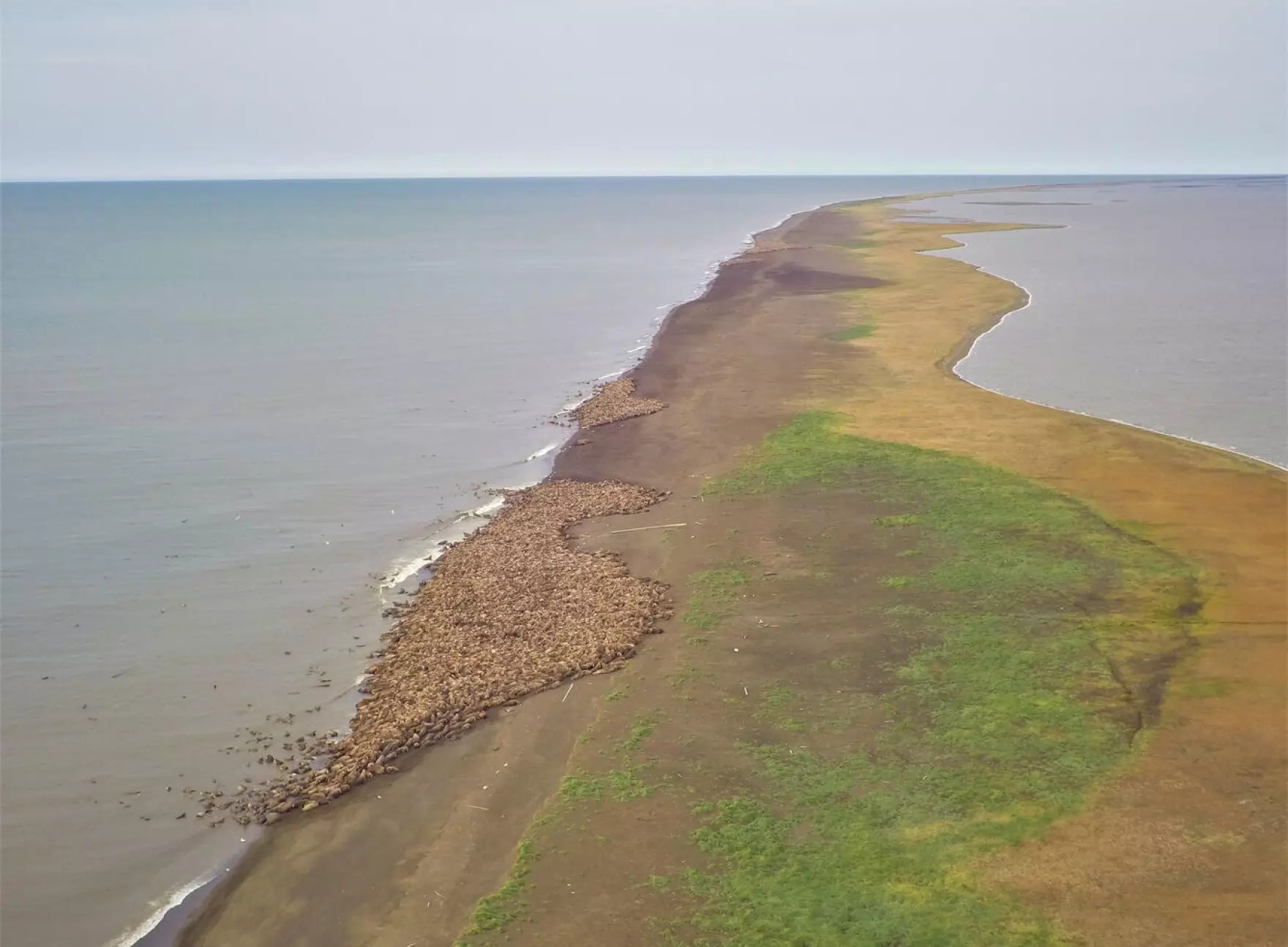
Aerial view of a large walrus haulout on the northwestern shores of Alaska in 2019. (Courtesy U.S. Geological Survey)
Lisbourne has been working with walrus biologists, making sure they follow safety protocols during regular surveys and don’t harm the animals.
“We are protecting the animals.”
After the project is done, Zdor says he hopes Lisbourne will continue documenting local knowledge.
 In South Dakota, the Humanities Council is delivering over 13,000 free books for third-grade students across the state.
In South Dakota, the Humanities Council is delivering over 13,000 free books for third-grade students across the state.
SDPB’s C.J. Keene has more.
It’s part of the annual Young Readers program and aims to help get students at every public, private, tribal, or home school reading.
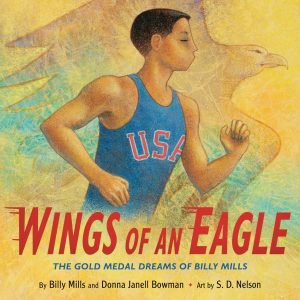 The Young Readers One Book selection for 2025 is “Wings of an Eagle: The Gold Medal Dreams of Billy Mills”.
The Young Readers One Book selection for 2025 is “Wings of an Eagle: The Gold Medal Dreams of Billy Mills”.
That book tells the story of the Oglala Lakota Olympic gold medalist and features illustrations by artist S.D. Nelson, who is also Lakota.
The book tells Mills’ story, journeying from Pine Ridge all to way to his ultimate destination as a world-class Olympian.
The story culminates with his last-second dash for the gold in the 10,000 meters race at the 1964 Tokyo Olympics.
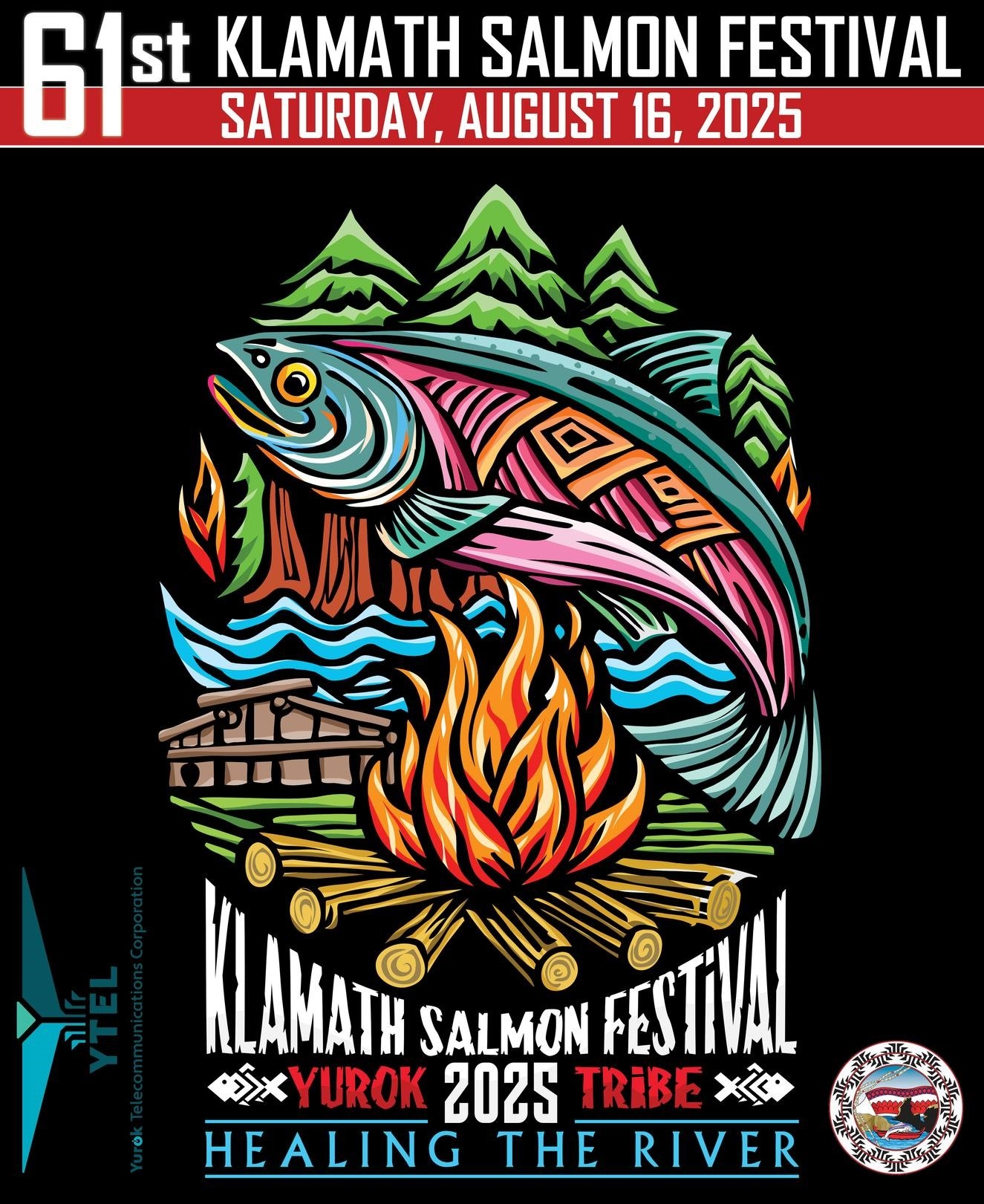 The Yurok Tribe is hosting its Klamath Salmon Festival Saturday in Klamath, Calif.
The Yurok Tribe is hosting its Klamath Salmon Festival Saturday in Klamath, Calif.
The family-friendly day features a number of events including music, basket-weaving demonstrations, and stick ball.
Chairman Joseph James says this year’s celebration is special pointing to the Klamath River. He says it looks better than any other time in living memory due to dam removal and restoration.
The last of four dams was removed in August of last year and according to the tribe, a month after the removal, thousands of salmon started to repopulate the newly free-flowing part of the river.
But there will be no salmon at the festival due to this year’s fish forecast being below average.
The tribe is confident salmon runs will recover.
Get National Native News delivered to your inbox daily. Sign up for our daily newsletter today.
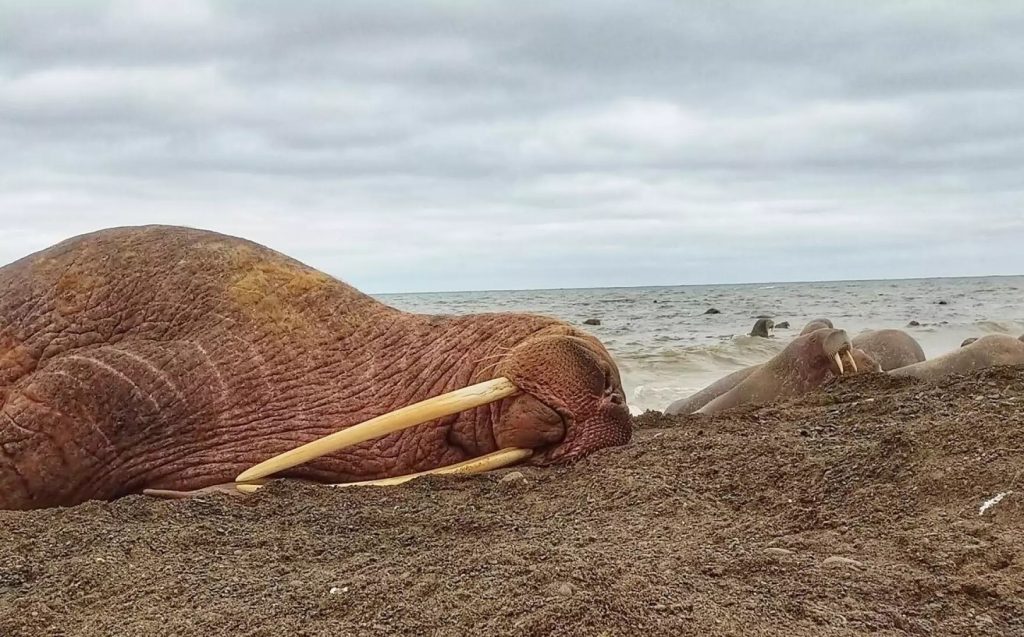
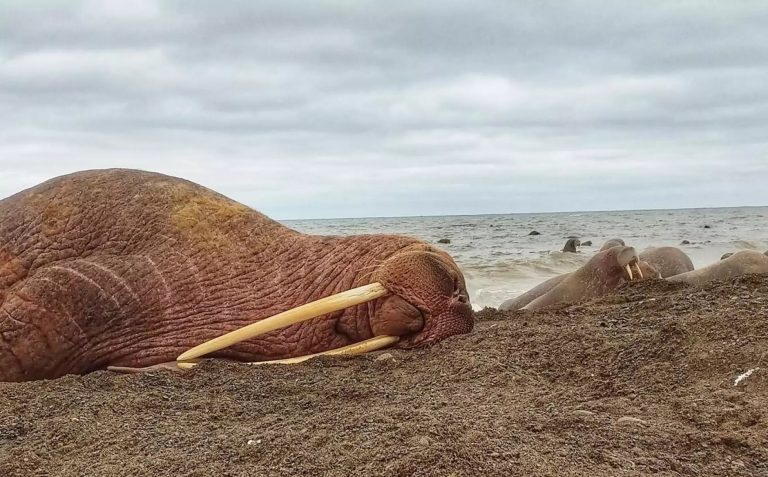
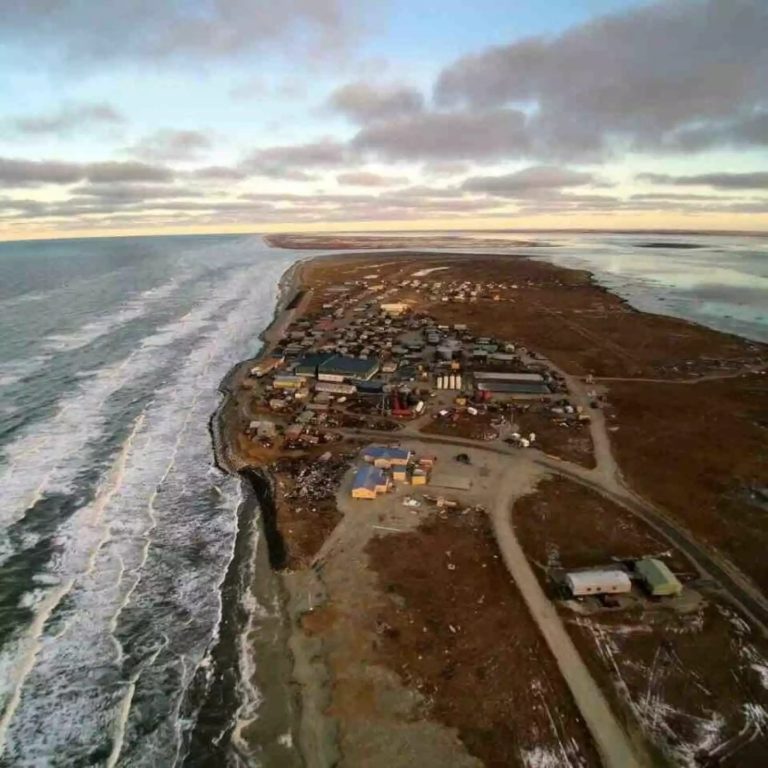
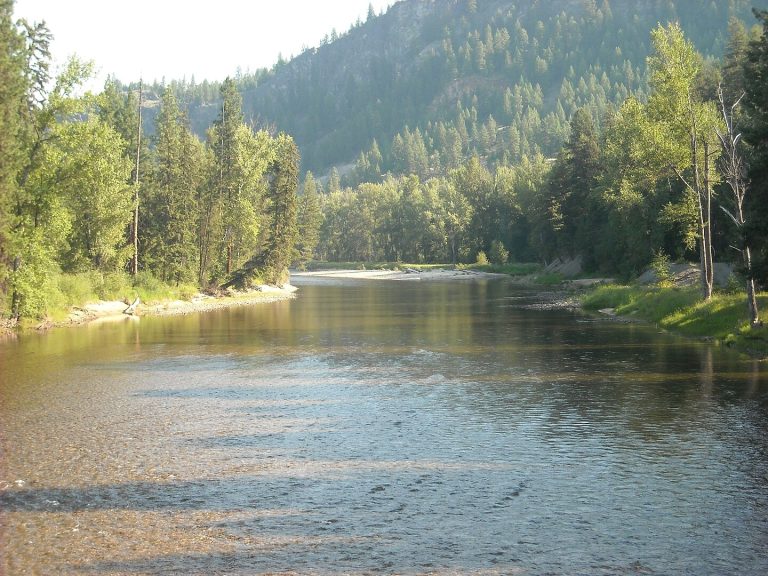
Leave a Reply